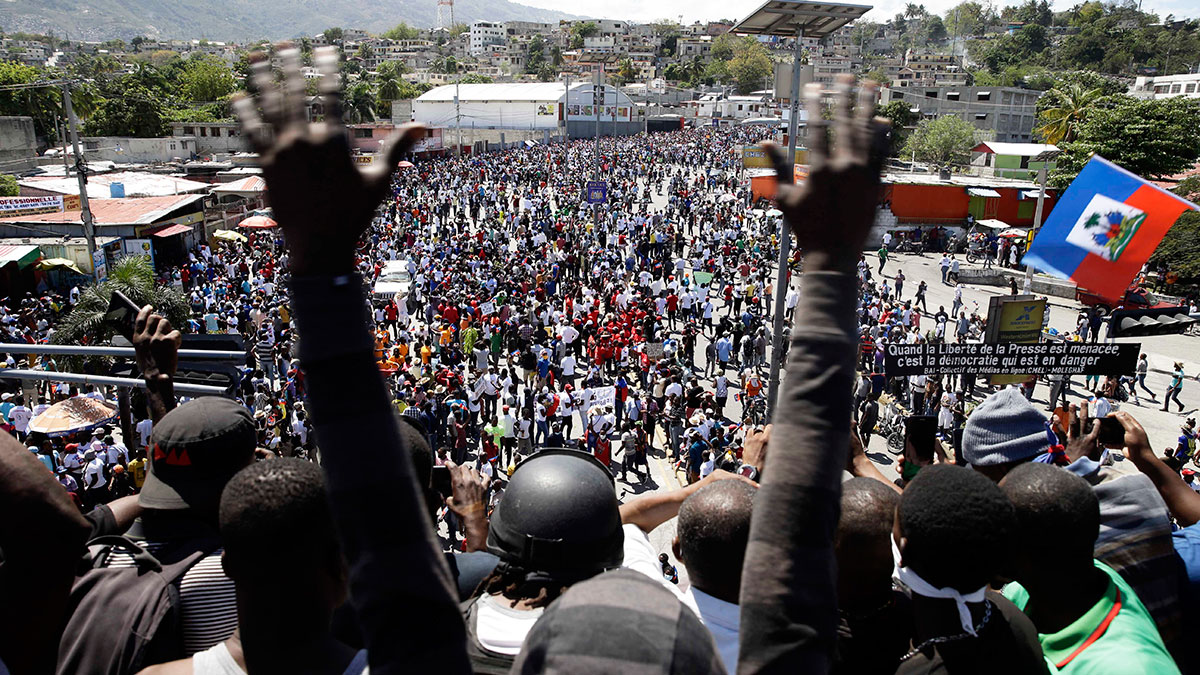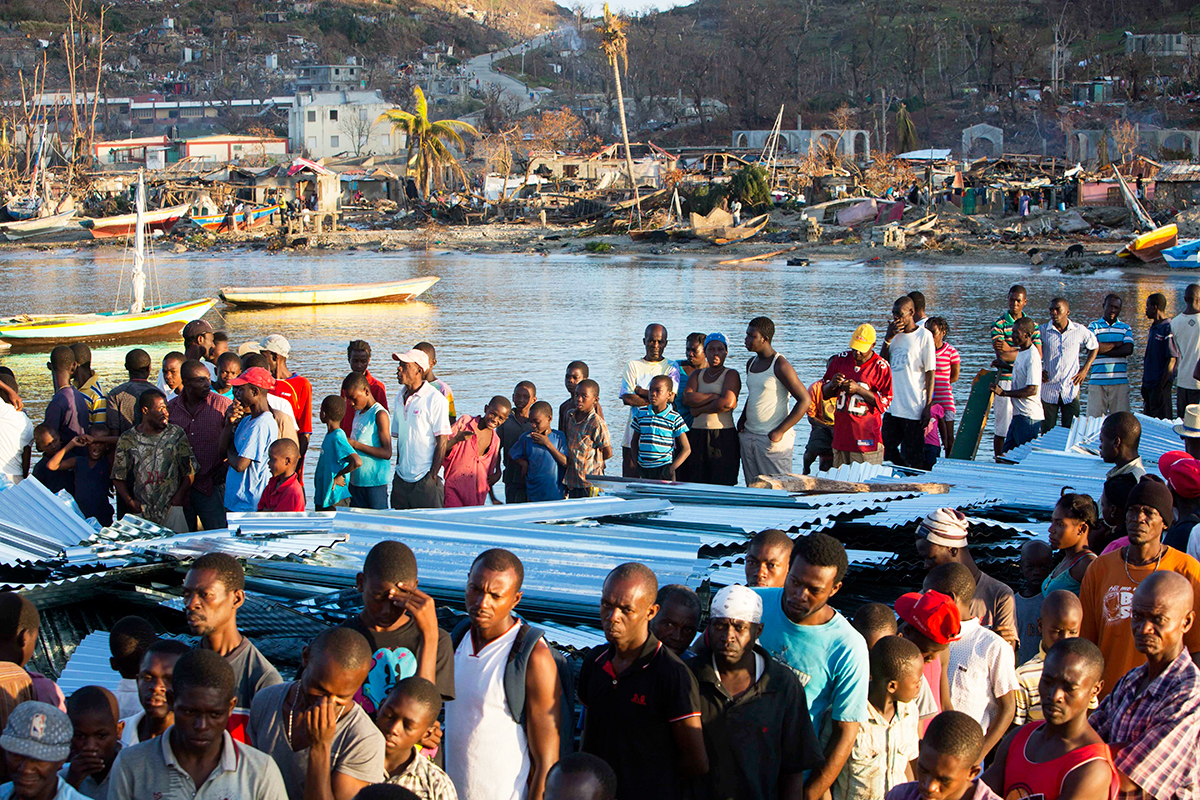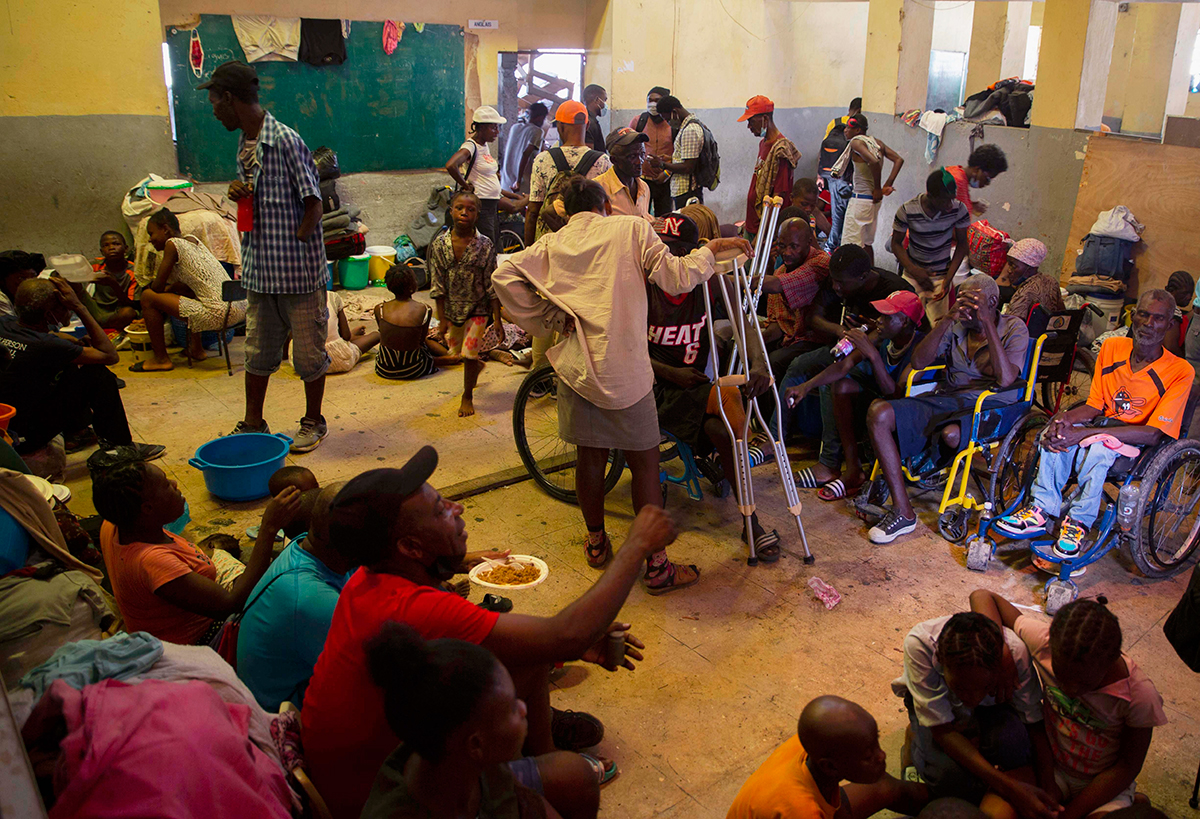Haiti Plunges Deeper Into a Crisis, Fundamentally Created by Capitalism-Imperialism
A Presidential Assassination, Even More Horrors for the Masses of People
| revcom.us
According to news reports and the current Haitian government, early on July 7, heavily armed men attacked and swarmed into the home of President Jovenel Moïse, ransacked it, and shot Moïse a dozen times, killing him. His wife Martine was also seriously wounded.
Over the next two days, Haitian police captured or killed 23 people alleged to have been part of the raid. The government claims they are Colombian mercenaries (plus two Haitian-American translators). The Colombian government reported that travel records show that these men began gathering and preparing in the Dominican Republic (Haiti’s neighbor) and in Haiti itself starting about two months ago.
This level of advance planning and financing points to powerful forces being behind the assassination, but who these forces were, and why there was no resistance from the president’s security force (reportedly 100 strong) are at this point unknown.
But the immediate result is clear—it has set off an enormous political crisis that threatens to further unravel Haitian society.
An Extremely Dangerous Political Crisis
Haiti was already in a complex political crisis—the legislative and judicial branches had largely stopped functioning, the Chief Justice of the Supreme Court just died of COVID-19, and for the last year Moïse has been ruling by decree.1 A large section of the population considered Moïse completely illegitimate, and there were repeated waves of protest demanding he resign. In response, Moïse was trying to make changes to the constitution to allow him to stay in office longer and gain greater powers.
Because of all this, there is no clear successor to the presidency, and no established process to select one. In this situation, three different political leaders are claiming to be the new head of state, and each is appealing to the U.S. and other big powers that dominate Haiti, as well as to different forces and factions in the Haitian ruling class to back them.2 The fact that these would-be successors are looking to the U.S. for who should lead their country reveals much about how the U.S. dominates Haiti and its responsibility for the suffering of Haitian people.
Further complicating this situation is that different bourgeois political parties have relationships with powerful criminal gangs that they unleash to attack neighborhoods that support their opponents. And some of the larger gangs even have aspirations to displace the established political leaders and run things themselves. There are reports of violent clashes between gangs struggling to control the roads that lead south out of the capital to the rest of Haiti.
The government (currently headed by Moïse’s prime minister, Claude Joseph) declared a 15-day “state of siege” granting police extraordinary powers, and appealed to the U.S. and the UN to send troops to “protect” the airport and other infrastructure. (So far, as we go to press, the U.S. has expressed no interest in doing this but is sending FBI and Department of Homeland Security agents to “assess” things and participate in the investigation of the assassination.)
In other words, various reactionary (anti-people) forces are deploying armed force to fill the political vacuum created by Moïse’s murder. There is a great danger that this could escalate to civil war on very bad terms and/or lead to the consolidation of a fascist-style dictatorship. The uncertainty and instability of the situation are paralyzing the economy as people fear to even be out on the streets.
Haiti was already suffering greatly—according to CNN, 60 percent of its 11 million people live in poverty. CNN also describes UNICEF's assessment that “1.5 million children are currently in need of urgent humanitarian assistance.” And that the COVID epidemic is raging, and Haiti has "not ... received a single dose of the COVID-19 vaccine.”3
This political crisis is making all of that even worse, and is likely to lead to increasing crime, violence, poverty, and new waves of refugees fleeing the island to the U.S. and elsewhere. While there is a lot that is uncertain, unknown and changing rapidly, what we do know is the whole history that has led to this point.
Haitian Crisis Rooted in Colonialist and Imperialist Foreign Domination
Haiti has been reeling from crisis to crisis for decades and decades, with each one bringing terrible suffering to the country’s 11 million people. In addition to natural disasters like hurricanes, floods, mudslides, and most importantly the devastating 2010 earthquake that killed at least 200,000 people, there is ever-deepening poverty, unemployment and outright hunger, and the rampant crime and gang activity that always accompany deep poverty.
U.S. media and politicians talk about Haiti like it was a tragedy to which they are benevolent bystanders. They cluck their tongues “sympathetically,” saying that “Haiti is the poorest country in the western hemisphere,” in spite of “billions of dollars in aid” from “the international community.” They talk about Haiti’s “troubled history” of political instability and coups.
But they omit or “forget” to mention the vicious—and predatory—role of “the international community,” especially France in slavery times, and the U.S. for the last 100 years. You won’t read much about the French warships that besieged Port-au-Prince in 1825, demanding billions of dollars in “reparations” for France’s lost “property” (i.e., slaves liberated when the Haitian revolution, the world's first successful slave revolution, overthrew French rule in 1804); or about the U.S. and French efforts to “isolate” Haiti and the contagion of slaves rising up; or about the 1915 U.S. invasion and 19-year occupation of Haiti, or the U.S. backing for the brutal dictatorships of Papa Doc Duvalier and his son Baby Doc, the destruction of the Haitian rice industry … and on and on and on.4
For a more detailed history of this, we highly recommend these revcom.us articles:
- The U.S. in Haiti: A Century of Domination and Misery
- American Crime Case #80: 1915-1934: The U.S. Invasion, Occupation and Domination of Haiti
Haiti has been part of and kept in a subjugated, impoverished and desperate situation by predatory imperialist powers. But even beyond Haiti’s particular history, the crisis there now is also part and parcel of mounting instability and dislocation in the world as a whole. Over the last century and more, the system of capitalism-imperialism has penetrated into every corner of the planet, imposing its viral system of production for profit, and of empire to protect those profits. And along with this has come countless wars; global climate change with its floods, storms and droughts, and the widespread destruction of small-scale peasant farming; the escalating growth of gangs, sex-trafficking and informal economies that ravage the population; the rapid moving of industries from one country to another seeking cheaper labor … all of which have rendered life in dozens of countries like Haiti unbearable.5
It is all this that has been playing out in Haiti, with the rise of the widely hated Jovenel Moïses regime, his murder by as-yet-unknown forces, and now the power struggle erupting within the Haitian elite to see who can get the backing of the U.S. to rule over and help further loot Haiti. All this is a damning indictment of imperialist domination of Haiti and of the capitalist-imperialist system as a whole.
1. According to the New York Times, “the nation’s democratic institutions have been hollowed out... Haiti is a parliamentary democracy with almost no parliament. The Senate is at one-third its usual size, and the lower house is entirely vacant because the members’ terms expired last year. Mr. Moïse had governed by decree for about a year.… [T]he judiciary has been virtually nonexistent for the past year, with judges often on strike to protest the political upheaval and rampant violence. And the head of the nation’s highest court, who might have offered guidance, died of Covid-19 in June.” [back]
2. For more on the power struggles in Haiti, see the New York Times, “Haiti’s Power Vacuum Escalates Kingmakers’ Battle for Control.” [back]
3. See CNN, “Two Americans among 15 detained over assassination of Haitian President.” [back]
4. For the real story, see “American Crime, Case #80: 1915-1934: The U.S. Invasion, Occupation and Domination of Haiti,” “The U.S. in Haiti: A Century of Domination and Misery,” and “HAITI: Five Days of Inspiring Rebellion Against Imperialist-Imposed Price Hikes… and the Crying Need for Revolution,” all at revcom.us. [back]
5. For more on why capitalism-imperialism is creating unprecedented crises around the world, see the “New Year’s Statement from Bob Avakian,” and “A Declaration, A Call To Get Organized Now For A Real Revolution” from the revcoms, both at revcom.us. [back]

A large section of the population considered Moise illegitimate. Above, in February 2021, people protested demanding he resign. Photo: AP

60 percent of Haiti's 11 million people live in poverty. Natural disasters contribute, like the earthquake of 2010 in which 250,000 people died and 5 million were displaced. Above, people line up for food and water after 2016 Hurricane Matthew. Photo: AP

Disabled Haitians at a shelter after their homes were set on fire by gangs, July 2021. Photo: AP
Get a free email subscription to revcom.us:


